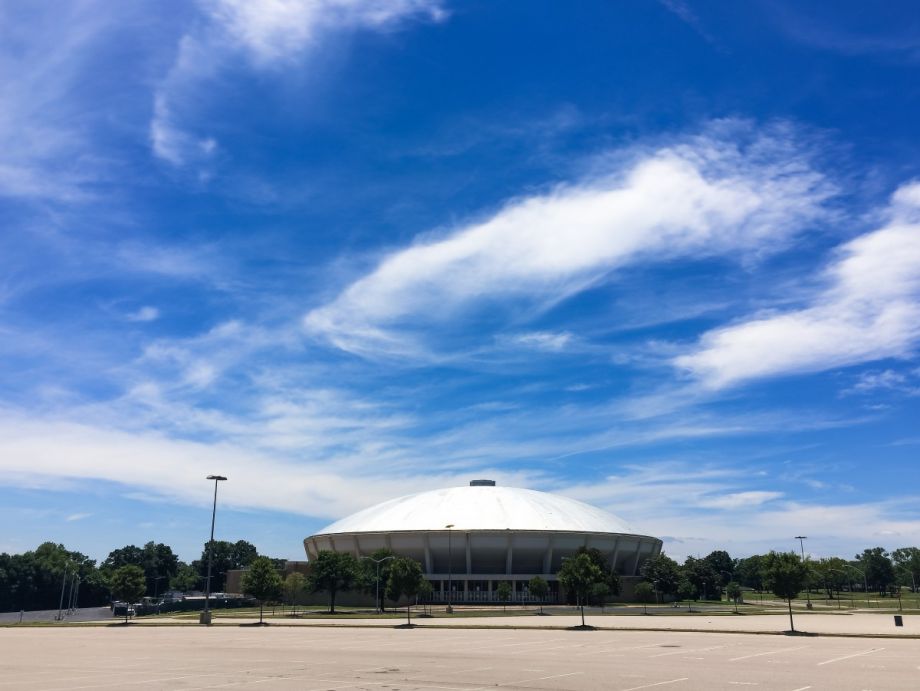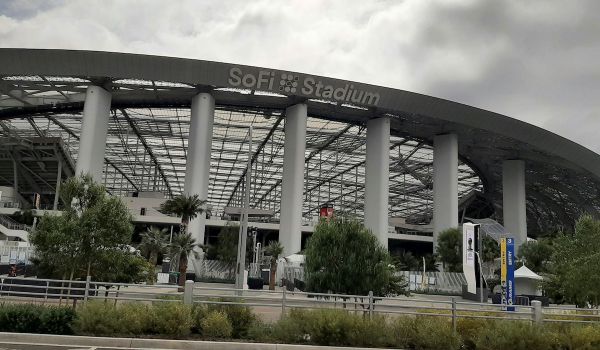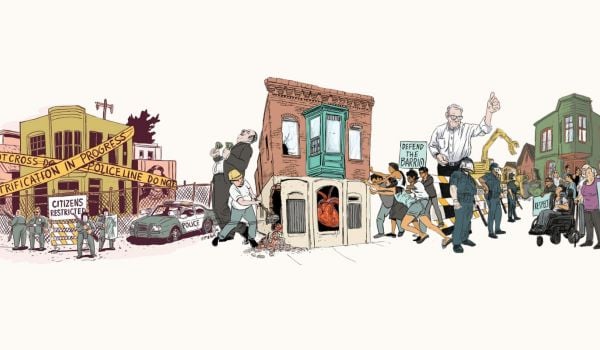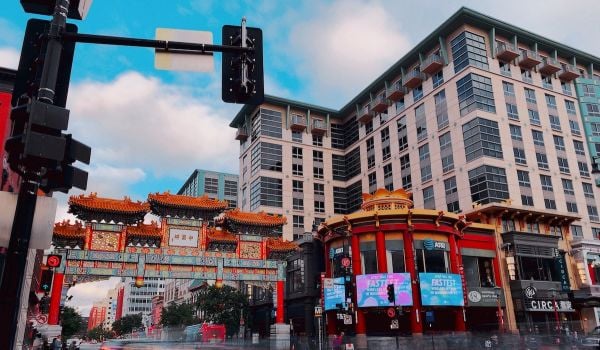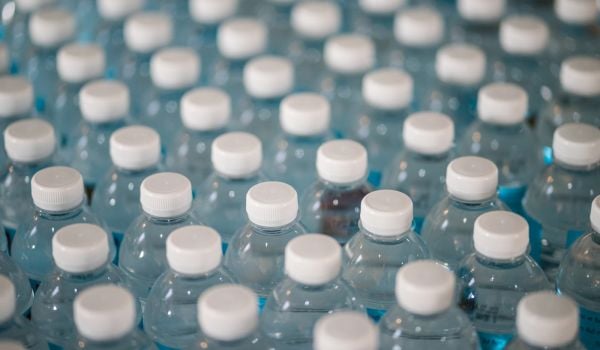Angela Barksdale, 62, still vividly remembers going to concerts at the old Mid-South Coliseum, in Memphis.
“I was in love with Patti La Belle,” says Barksdale. “One particular concert, I’ll never forget … she came out of the ceiling in a birdcage. She had on this feather suit, and I just thought that was awesome.”
Barksdale, like a majority of Memphians, supports the idea of re-opening the Coliseum. The 10,000-seat venue closed in 2007 because of its lack of compliance with Americans with Disabilities Act (ADA).
When the City of Memphis announced it was going to demolish the arena in 2014, a few community members launched a petition to save the building, which is part of the historic Memphis Fairgrounds. That initiative grew in strength with groups such as the Coliseum Coalition and Friends of the Fairgrounds emerging to draft plans to remodel the Coliseum and make it viable for a new millennium.
This coming Saturday, the Coliseum Coalition hosts the third annual “Roundhouse Revival,” crowdfunding to support the performers, including professional wrestlers. It’s a nod to the venue’s past, as well as suggesting a potential future for the venue as a local recreational space and economic engine for Orange Mound, one of the first communities in the south built by and for African Americans.
“The Coliseum was the focal point for Orange Mound at one point. There were wrestling matches. There were basketball games. There were all types of events,” says Barksdale, who grew up in the neighborhood. “When they closed it down, that took away jobs. That took away our sense of having a location [that] we could call our own.”
But re-opening the Mid-South Coliseum has not been simple or straightforward. In the decade since its closing, the city, which owns the complex, has backed itself into a legal corner as part of financing a newer, larger venue for the city’s professional basketball team; meanwhile, Orange Mound is no longer as connected to the Mid-South Coliseum as it once was.
“There are two ways people squelch any conversation about the Coliseum. There was a false narrative that was put out there that it was a dilapidated building that was falling down and should be torn down,” says Marvin Stockwell, who co-founded the Coliseum Coalition in 2014 and since moved on to co-found Friends of the Fairgrounds. “The other impediment that keeps progress from being made is what’s known as the Grizzlies’ non-compete.”
The city issued $250 million in municipal bonds to finance the 18,000-seat FedExForum to serve as the home of professional basketball’s Memphis Grizzlies. That venue opened in 2004, three years before the Mid-South Coliseum closed. Per the agreement to finance the FedExForum, the Grizzlies organization is on the hook for any operating losses by the venue. The city says the agreement has saved it millions of dollars. But the agreement also includes a non-compete provision that says the city of Memphis shall not provide financial incentives to any project with an indoor performance venue of 5,000 or more seats because such a venue would compete with FedEx Forum for concerts and other shows.
The Mid-South Coliseum isn’t the only project that has encountered this unusual barrier to public financing. Elvis Presley Enterprises, which operates Elvis’ Graceland, is currently embroiled in litigation with the regional economic development agency to obtain public financing for a proposed expansion to Graceland that would include a concert venue.
Stockwell suggests that the Grizzlies are missing the big picture vision and that a renovated Coliseum could host the team’s developmental league affiliate, among other sorts of events and activities.
The Grizzlies declined Next City’s requests for an interview or comment on the matter.
In the meantime, the Coliseum Coalition drafted a business plan that calls for the structure to be remodeled to comply with the ADA, which would actually reduce its seating capacity to approximately 5,000. The plan estimates that the overhaul would cost approximately $25.5 million. The group’s business plan also outlines a strategy of re-opening the venue alongside an amateur sports complex — which jives with a city proposal for the site.
The City of Memphis put out its own proposal for the creation of a tourism zone at the Memphis Fairgrounds that would allow a proposed youth sports facility to use income generated by its own activities to help cover its building costs. The city’s plan posits such a facility as the host and magnet for local and regional indoor competitions.
“Our goal is to try to improve the area around the Coliseum and activate it with assets like a youth sports complex that will provide more likelihood of a private investor wanting to put money into the Coliseum,” says Paul Young, Director of Memphis’ Division of Housing and Community Development. “Are there uses other than an arena? That’s what we think is really a way to get that building really back activated.”
But the city’s plan doesn’t include investing in the existing venue. The city has yet to issue a request-for-proposals for what to do with the Mid-South Coliseum itself.
“I 100-percent agree with the folks on that side that want to see it re-opened because it’s a cool venue and it definitely has historic implications and a lot of nostalgia,” says Young. “[But] the reason the Grizzlies have a non-compete clause is because they have agreed to take on any losses associated with the operating aspect of the FedEx Forum. So, when you add new venues into the city and into our market, it is inherently going to compete.”
The Memphis area has a number of other venues already, such as the Landers Center in nearby Mississippi; Overton Park, Minglewood Hall, and the Orpheum Theater.
“If you analyze it like we have, you realize there are all sorts of event types that the non-compete does not require that [the team] be consulted and that there are lots of event types that would be appropriate for the Coliseum that would not be appropriate for FedExForum,” Stockwell says.
While others in the city want to see the area revitalized, they have additional concerns about the priorities being pursued.
Britney Thornton is a Memphis native who, like Barksdale, grew up in Orange Mound. After completing a master’s degree in social work, Thornton returned to her hometown to teach. The neighborhood where she grew up, however, had changed.
“The Orange Mound of the present day has no direct contact with the Coliseum,” says Thornton. “The people who love [the Coliseum] the most are probably not going to be in that physical place as of yet because of mobility constraints. They’re 70- and 80-year-old seniors, and their sons and daughters … have moved out of the community.”
Another factor Thornton noted is that the community has lost homeowners and tipped to become a majority rental neighborhood.
“What they’re planning now isn’t really conducive to people who are impoverished,” she said. “The average Orange Mound resident, they’re not engaged. The idea of taking a bike ride and crossing two bridges [to get to the venue] is foreign to them.”
Thornton established a non-profit organization, Juice Orange Mound, to engage residents. Yet, the lack of engagement, she says, means that plans for revitalizing the Memphis Fairgrounds as a whole need to consider how to facilitate access and stimulate participation from the neighborhoods that surround it.
Thornton says she plans on running in the next city council elections.
A 2015 analysis from the Urban Land Institute on plans for the Fairgrounds recommends creating a “Midtown Collaborative Initiative” focused on engaging Orange Mound and other neighborhoods surrounding the Fairgrounds.
Aaron Shafer, a research scientist involved with a process to develop a skatepark in Memphis, says it’s normal for planning processes to take time and involve lots of back and forth. Agreeing with Thornton, Shafer says that the central issue in the project should be the benefit to the city’s residents.
“I just want to see the Fairgrounds be a place where we really increase the quality of life for our citizens. Memphis is a place where we don’t have a lot of natural attractions. And we need to build more. We don’t have mountains. We don’t have clear lakes. We have a giant Mississippi that you can’t do anything with,” Shafer says. Further complicating the situation, Shaffer says, the city has lost attractions such as the Liberty Land amusement park that was on the fairgrounds, and a nearby freshwater beach.
“We don’t have a lot of room for fooling around with money when it becomes available,” says Shafer. “Is a sports complex really going to increase quality of life for most Memphians? … I don’t think it is. That’s where I’m at.”

Zoe Sullivan is a multimedia journalist and visual artist with experience on the U.S. Gulf Coast, Argentina, Brazil, and Kenya. Her radio work has appeared on outlets such as BBC, Marketplace, Radio France International, Free Speech Radio News and DW. Her writing has appeared on outlets such as The Guardian, Al Jazeera America and The Crisis.
Follow Zoe .(JavaScript must be enabled to view this email address)

